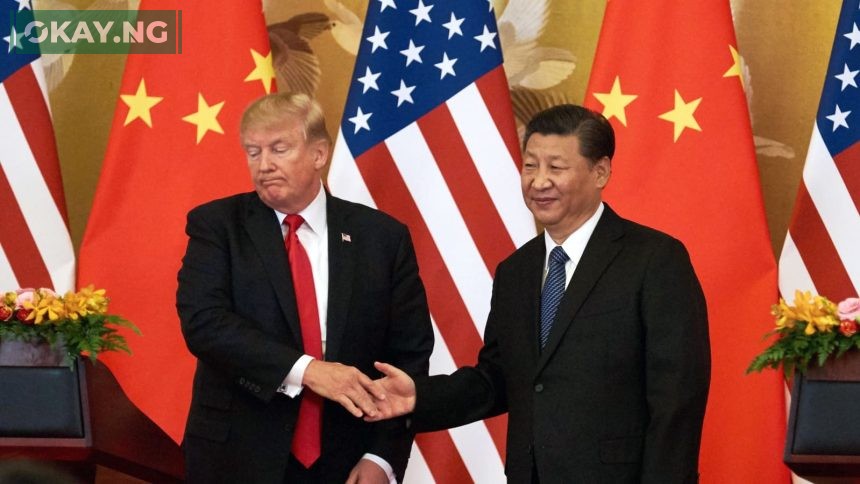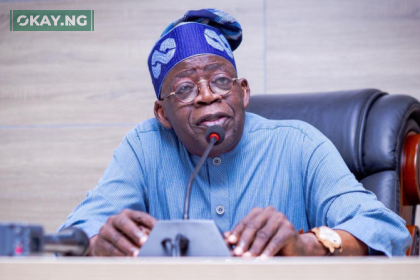As the protracted trade dispute between the world’s two largest economies intensifies, China has issued a firm warning to nations contemplating economic agreements with the United States that could potentially undermine Chinese interests. This development comes amidst reports of the US administration’s plans to leverage tariff reductions to pressure countries into curtailing their trade relations with Beijing.
“We will firmly oppose any party striking a deal at China’s expense,” declared China’s Commerce Ministry in a strongly worded statement on Monday. The ministry further asserted that Beijing would respond with “countermeasures in a resolute and reciprocal manner” should such agreements materialize.
This warning follows a recent Bloomberg report suggesting that the Trump administration is considering employing monetary sanctions as a tool to compel countries seeking relief from US tariffs to diminish their trade with China. This strategy appears to single out China, as President Trump has largely paused widespread tariff impositions on numerous nations while maintaining them on Chinese goods.
The United States has significantly escalated tariffs on Chinese imports, raising them to a substantial 145%. In response, Beijing has implemented duties of 125% on American products. Notably, China recently signaled its intention to refrain from further increasing its tariff rates.
China has been vocal in its criticism of the US approach, accusing Washington of “abused tariffs on all trading partners under the banner of so-called ‘equivalence’, while also forcing all parties to start so-called ‘reciprocal tariffs’ negotiations.” This sentiment underscores Beijing’s growing frustration with the current state of global trade relations.
Bo Zhengyuan, a partner at the China-based policy consultancy Plenum, offers an insightful perspective on the potential reactions of other nations. “If countries have high reliance on China in terms of investment, industrial infrastructure, technology know-how and consumption, I don’t think they’ll be buying into U.S. demands. Many Southeast Asian countries belong to this category,” Zhengyuan noted, highlighting the complex economic dependencies that could make countries hesitant to align fully with US demands.
In a move signaling its intent to challenge the US stance on the global stage, China is reportedly planning to convene an informal UN Security Council meeting this week. The agenda for this meeting includes accusing the United States of engaging in “bullying” tactics through the “weaponising” of tariffs.
Read Also: China Escalates Trade War, Imposes 125% Tariffs on US Goods
Conversely, US Trade Representative Jamieson Greer indicated that nearly 50 countries have approached him regarding President Trump’s additional tariffs. Some of these nations have reportedly commenced discussions with the US. For instance, Japan is considering increasing its imports of soybeans and rice from the US, while Indonesia is planning to purchase more American food and commodities. These developments suggest a potential reshaping of global trade flows as countries navigate the complexities of the US-China trade friction.
Beyond tariffs, the US is also actively seeking to restrict China’s advancement in the critical sector of advanced semiconductor chips, citing national security concerns. This strategy was further evidenced by the recent imposition of port fees on vessels constructed in China. The impact of these restrictions is already being felt, as AI chip manufacturer Nvidia recently announced charges amounting to $5.5 billion due to US export limitations.
In a proactive effort to counter these US pressures and strengthen regional alliances, Chinese President Xi Jinping undertook a visit to Southeast Asian countries last week. During his engagements, President Xi emphasized the importance of regional solidarity and encouraged partners to resist what he termed “unilateral bullying,” a clear reference to the trade policies of the United States.
The unfolding developments in the US-China trade war carry significant implications for the global economy. As these two economic powerhouses continue to navigate their complex relationship, the decisions made by other nations in response to these pressures will undoubtedly shape the future landscape of international trade and geopolitics. The delicate balancing act for many countries lies in maintaining crucial economic ties with both the US and China without incurring punitive measures from either side. The coming weeks and months are likely to be critical in determining the trajectory of this high-stakes economic and diplomatic standoff.













